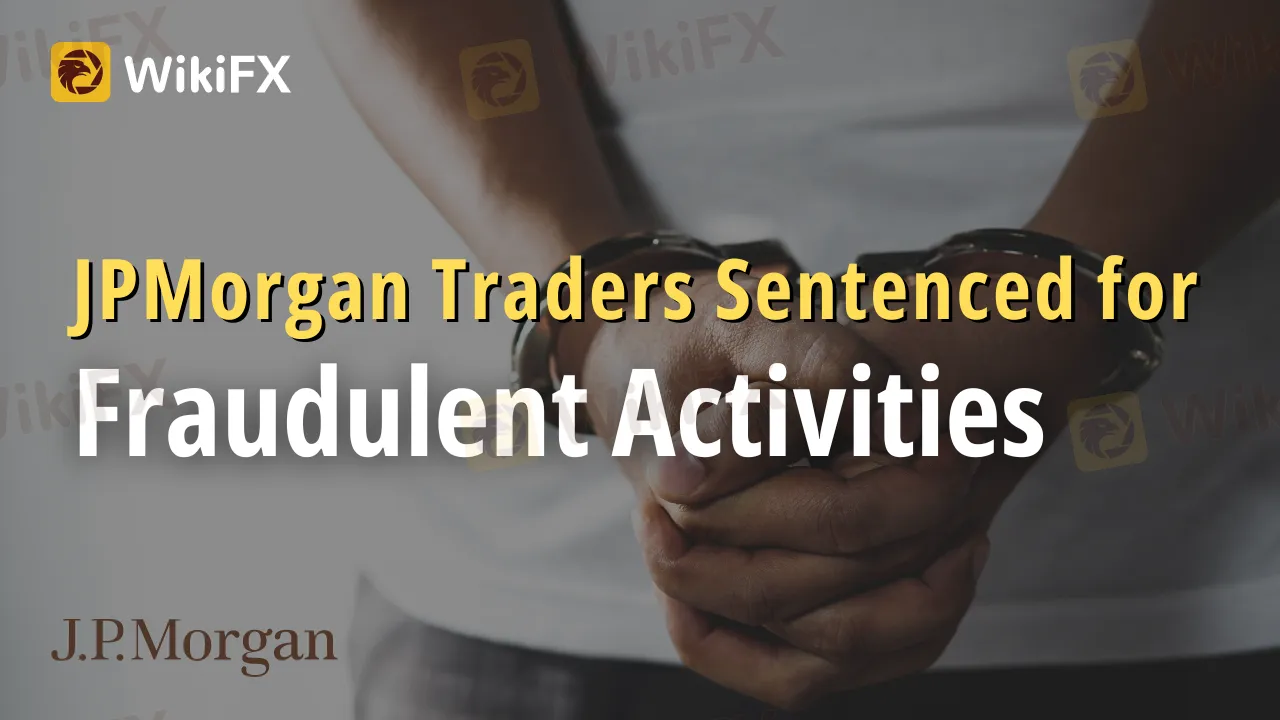简体中文
繁體中文
English
Pусский
日本語
ภาษาไทย
Tiếng Việt
Bahasa Indonesia
Español
हिन्दी
Filippiiniläinen
Français
Deutsch
Português
Türkçe
한국어
العربية
JPMorgan Traders Sentenced for Fraudulent Activities
Abstract:Two former JPMorgan precious metals traders receive sentencing for fraud, price manipulation, and spoofing, causing millions in market losses.

The U.S. Justice Department has pronounced its judgment on two former JPMorgan traders for their involvement in illicit trading practices. The verdict stems from a series of fraudulent activities that not only misled the market but also resulted in considerable financial loss.
Who are these traders?
The traders in question are Gregg Smith, 59, of Scarsdale, New York, and Michael Nowak, 49, of Montclair, New Jersey. Smith was sentenced to two years in jail and a $50,000 fine by the Justice Department. Nowak, on the other hand, got a one-year and one-day imprisonment, as well as a $35,000 fine.
What was the nature of their misconduct?
These two traders were pivotal players in a long-running market manipulation scheme, which stretched from 2008 to 2016. This deceitful operation encompassed tens of thousands of illegal trading sequences. As a result, unsuspecting market participants faced a staggering loss of over $10 million.

A significant aspect of their malpractice was “spoofing.” This tactic involves swiftly placing orders and then canceling them. The intent behind this is to artificially give the impression of a surge in demand or supply. Such misleading strategies can have detrimental effects on the market, influencing unsuspecting traders based on this faux demand or supply.
This practice of spoofing was officially deemed illegal in 2010. The decision came with the passage of the Dodd-Frank Act by the U.S. Congress in the wake of the financial crisis.
Previous Proceedings
Smith and Nowak faced a plethora of counts in a previous trial. While they were convicted of fraud and other connected offenses, they were cleared of racketeering and conspiracy counts. Nowak was found guilty of more than a dozen offenses, including spoofing, fraud, and market manipulation efforts. Smith was convicted of 11 different crimes.
JPMorgan's Acknowledgment
In light of these fraudulent activities and misconduct by its traders, JPMorgan conceded to its missteps in 2020. The financial institution agreed to a hefty settlement, shelling out more than $920 million. This move was an attempt to make amends with both the Justice Department and the Commodity Futures Trading Commission.

For those keen on staying updated with J.P. Morgan's latest activities and news, you can visit their dealer page: https://www.wikifx.com/en/dealer/8981623292.html. Additionally, for real-time news updates, consider downloading and installing the WikiFX App on your smartphone.

Disclaimer:
The views in this article only represent the author's personal views, and do not constitute investment advice on this platform. This platform does not guarantee the accuracy, completeness and timeliness of the information in the article, and will not be liable for any loss caused by the use of or reliance on the information in the article.
Read more

The Withdrawal Trap: How Scam Brokers Lure Victims into Paying More
In the world of online trading, the promise of quick profits and seamless transactions often masks a darker reality. One of the most insidious tactics employed by fraudulent brokers is blocking withdrawals, that is a deliberate strategy designed to trap traders and investors into paying more money under false pretences.

Common Tactics Used in Online Trading Fraud Today
Know the top online trading scams of 2025, from fake apps to pump-and-dump tricks. Simple tips to spot and avoid them, keeping your money safe in this easy guide.

Exposed by SC: The Latest Investment Scams Targeting Malaysian Investors
The Securities Commission Malaysia (SC) has updated its Investor Alert List for March 2025, warning the public about unlicensed investment schemes and fraudulent financial entities.

RM1.29 Million Lost in ‘C Baird VIP’ WhatsApp Scam
A 43-year-old company auditor and subcontractor in Malaysia became the latest victim of an elaborate investment scam after losing RM1.29 million to a fraudulent scheme promoted via WhatsApp.
WikiFX Broker
Latest News
FCA Warns Against 10 Unlicensed or Clone Firms
CySEC Warns Against 14 Unlicensed Investment Websites
Top Currency Pairs to Watch for Profit This Week - March 31, 2025
Will natural disasters have an impact on the forex market?
Philippines Deports 29 Indonesians Linked to Online Scam Syndicate in Manila
Exposing the Top 5 Scam Brokers of March 2025: A Closer Look by WikiFX
Gold Prices Climb Again – Have Investors Seized the Opportunity?
Webull Launches SMSF Investment Platform with Zero Fees
Australian Regulator Warns of Money Laundering and Fraud Risks in Crypto ATMs
The Withdrawal Trap: How Scam Brokers Lure Victims into Paying More
Currency Calculator







